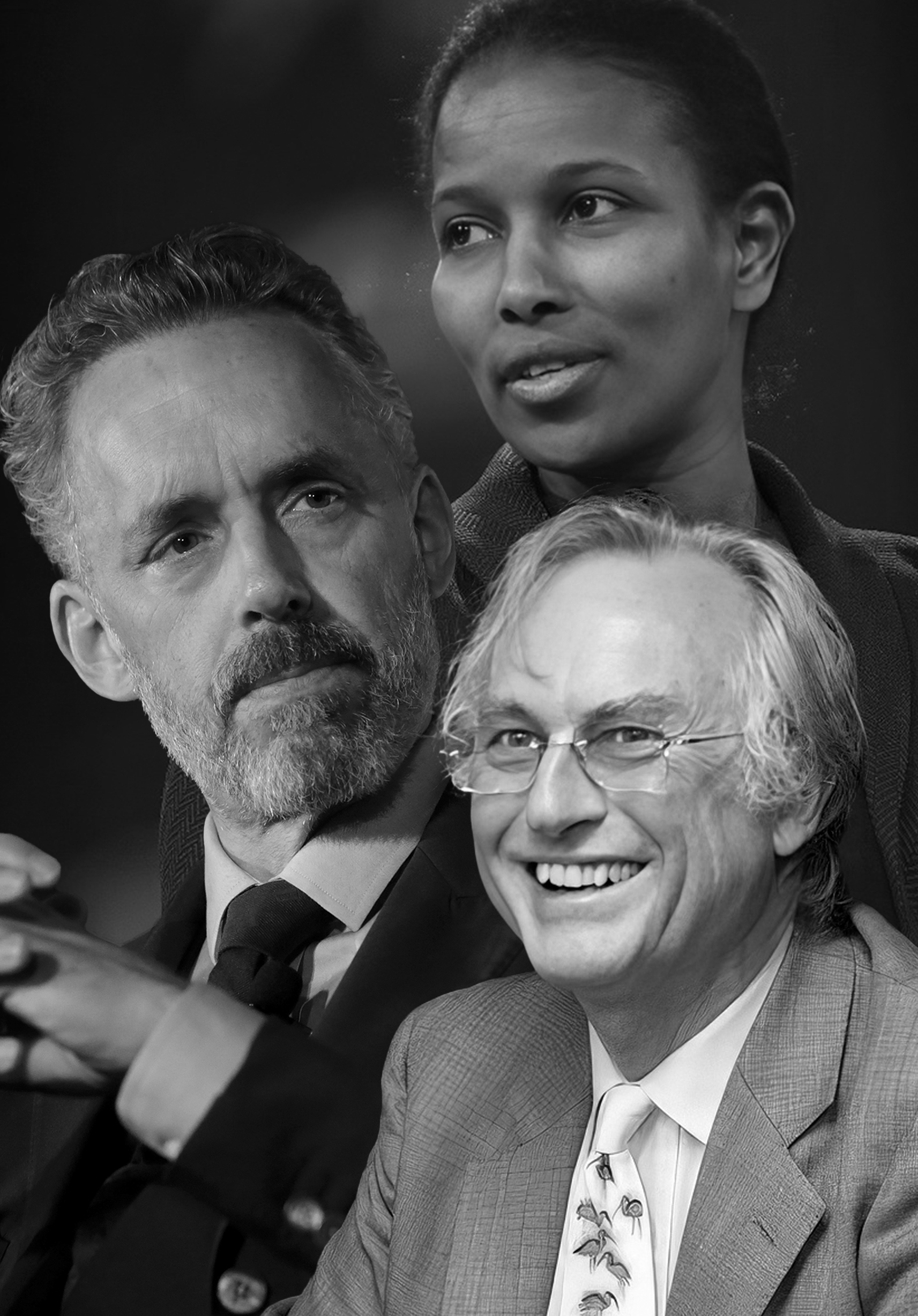
As the rising sun brought life and light to the east coast of North America, it was greeted by a brisk autumn morning. Hurricane Erin was on the move in the Atlantic, creating heavy rainfall from Newfoundland to Bermuda. A cold front saved most of the eastern seaboard from the hurricane’s destruction and the resulting high-pressure front produced clear skies—perfect conditions for air travel.
As those in Washington, Philadelphia and New York were putting on their slippers and pouring cereal into their bowls, the airline industry was already in full-swing. Three high-profile passengers were scheduled to board an aircraft departing from Boston, Massachusetts that day. The first was David Angell, a TV producer, Emmy Award winner and creator of the sitcom Frasier. The second was Seth MacFarlane. Also in the TV business, MacFarlane was most known for creating the irreverent and often-controversial animated show Family Guy. The third was actor and hip-hop artist Mark Wahlberg. However, through random chance, neither MacFarlane nor Wahlberg showed up for their scheduled flight. MacFarlane was hungover from a heavy night of drinking and, to make matters worse, his travel agent had given him the wrong time. For his part, Wahlberg had had a last-minute change of plans and didn’t show up either. Of the three, only Angell and his wife Lynn boarded American Airlines Flight 11, departing from Logan International Airport at 7.45am bound for Los Angeles, California. However, at roughly 8.20am, five men hijacked the plane, diverted it off-course and at around 8.46am, crashed the plane into the North Tower of the World Trade Center in Manhattan, New York. Angell, his wife and all 90 others on-board were killed, along with thousands in and around the World Trade Center.
Little did any of us know how profoundly the world would change after that brisk autumn day in Manhattan. The Western world, which had seemed so safe and secure in the idyllic and economically prosperous 1990s, suddenly felt more vulnerable than it ever had before. What would follow 9/11 was a tightening of security throughout the entire world, increased paranoia and xenophobia, as well as a decades-long “war on terror”, resulting in unimaginable loss of life and deep scars in the Middle East that will take generations to heal.

Trying to find meaning
In the wake of this attack, millions struggled to make sense of this senseless act of violence. Christian fundamentalist leaders claimed that God was “angry with America” on account of its tolerance of feminism, secularism, homosexuality and abortion, to name a few. Others responded differently. On September 12, grad student Sam Harris began writing a book that would eventually be titled The End of Faith. The book was a scathing critique of religious belief and was well-received by most sceptics and unbelievers. It was not so well-received by religious groups. But with the release of his book, Harris did more than just stir up an intellectual hornet’s nest. In 2006, two years after The End of Faith was published, Professor Richard Dawkins published The God Delusion. A year later, Christopher Hitchens put out God is Not Great. In the wake of 9/11, a new movement critical of faith began to gain real steam. These three men, as well as philosopher Daniel Dennett, went on to form the “Four Horsemen of New Atheism”, a title as ironic as it is foreboding. For several years, these “horsemen” have terrorised the believing world through podcasts, lectures and many, many books. However, this article isn’t about them. It’s about their fifth “horsewoman”.
Ayaan Hirsi Ali was born in Somalia and grew up in Kenya as a devout Muslim. She emigrated to the Netherlands in 1992 to avoid an arranged marriage and it was there that she abandoned her Muslim faith, becoming an activist, politician and advocate for women’s rights. After reading Dutch philosopher Herman Philipse’s The Atheist Manifesto shortly after 9/11, she became an atheist as well as both a fierce critic of Islam and religion in general. She later met the new atheists, upon which Dawkins bestowed upon her the title of their fifth “horsewoman”. Recently, however, Ali has turned on her atheist friends in the most bizarre way: by becoming a Christian.

Conflict in paradise
In an unexpected essay published in late 2023, she reflects on the particularly harsh version of Islam she grew up with. “On this earth,” she says, “the greatest achievement possible was to die as a martyr for the sake of Allah.” She and her childhood friends rejected all Western identity markers, served “the poor, the old, the disabled and the weak”, demanded that non-Muslims convert and “cursed the Jews multiple times a day”. One can understand why the new atheists were so attractive. Compared to her childhood coloured by fear and hatred, Dawkins and Hitchens were as equally confident in their “rightness” as the Muslim Brotherhood but the way they lived their lives was, by comparison, much freer. They were also clever, intelligent and fun.
Ali’s beef with her former friends was not so much intellectual as it is pragmatic. She sees the West as being under threat from three distinct areas: (1) The rise of authoritarianism embodied by both China and Russia, (2) global Islam and (3) woke ideology. In the face of these looming threats, Ali believes atheism to be an insufficient unifier. Citing Tom Holland’s (the historian, not Spider-Man actor) book Dominion, she makes the case that whether we like it or not, the West finds its economic, religious, judicial and cultural roots in Christianity. “I have also turned to Christianity because I ultimately found life without any spiritual solace unendurable—indeed very nearly self-destructive.” Ayaan Hirsi Ali needs Christianity—not because she claims its specifics to be true, but because she sees it as (1) a necessary ally in the imagined wars of the future, whether cultural or real and (2), an escape from the existential dread of nothingness implicit to the atheist worldview. As it turns out, she’s not alone. Figures like self-help guru Jordan Peterson likewise insist on the cultural and psychological importance of Christianity—all the while struggling to answer if he truly believes whether it’s true or not. In the same way, pundits like Ben Shapiro, Steven Crowder, Dave Rubin and more routinely defend Christianity while at the same time behaving in ways that undermine its core teachings.
All this brings me to an uncomfortable place. It’s that in all these culture wars, the person I agree most with is Richard Dawkins.
 Terms of engagement
Terms of engagement
Shortly after Ali’s essay, Dawkins responded with an open letter. In it he addresses many things, but the point that made me side with him is his statement, “What matters is what you believe.” Dawkins notes the conspicuous lack of faith confessions in Ali’s essay. “Christianity makes factual claims, truth claims that Christians believe, truth claims that define them as Christian.” He then goes on to mention the concepts of the resurrection, the virgin birth, the existence of hell, among others. He accuses Ali of not actually believing any of it to be true. He concludes by saying, “Ayaan, you are no more a Christian than I am.”
Though I am not willing to guess at Ayaan Hirsi Ali’s personal beliefs, the one note that rang true in this entire conversation is Dawkins’ insistence on the terms of battle. Whereas those concerned for the preservation of “the West” (whatever that means) are more than happy to support Christianity, even if they don’t believe it to be true, die-hard atheists like Dawkins still, in 2024, don’t believe that’s good enough. And, for what it’s worth, neither do I. Although my convictions differ significantly from Dawkins in almost every aspect, I can appreciate his dogmatism on the fundamental question, “Is it true, or not?”
If the truth claims Christianity puts forth are false, then we should rightly abandon it, regardless of how culturally useful it is. A lie is a lie, no matter how much comfort it brings. However, if it is true, that makes Christianity not only the foundation of “the West”, but of all reality—past, present, future.
Many arguments have been made on the importance of preserving the Christian institution for the sake of “social order”, the “soul of the nation” or whatever other real or imagined threat societies have faced in the past. If we’ve learned anything from the past, we’d recognise that untruths, no matter how well-intentioned, still do more long-term damage than short-term good. For those of us who do believe, what should matter is whether the claims of Christianity are true or not. Whether we need Christianity to fight “rampant wokeness”, Xi Jinping or radical Islam is irrelevant. Scripture is for everyone, not just Christians but as Jesus Himself said to the corrupt religious leaders of His day: “You search the Scriptures because you think they give you eternal life. But the Scriptures point to me!” (John 5:39*)
I can’t speak to the sincerity of people like Peterson or Ali and the hopeful part of me wants to believe that their explorations of faith are genuine. Nor, should I add, can I intelligently refute every argument levied against Christianity, but I know one thing for certain. I do not want my faith to rise and fall on its cultural or political usefulness, nor because I need the comfort of the eternal in the face of the cold vacuum of the universe. I certainly don’t want Christianity to thrive simply so that “the West” is better equipped to combat Vladimir Putin. If I’m to believe in something, I want to believe on the basis that it’s the truth. Nothing more—and certainly nothing less.
Jesse Herford is a pastor and associate editor for the Australia/New Zealand edition of Signs of the Times. He lives in Canberra, Australia with his wife, Carina and their miniature schnauzer, Banjo.
* Scripture quotations marked (NLT) are taken from the Holy Bible, New Living Translation, copyright ©1996, 2004, 2015 by Tyndale House Foundation. Used by permission of Tyndale House Publishers, Carol Stream, Illinois 60188. All rights reserved.






